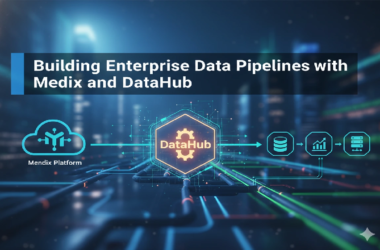For enterprises and large-scale websites, choosing a hosting and development platform is a critical decision. WordPress VIP is often the gold standard, offering an a-la-carte solution for hosting, security, and support tailored to high-traffic, high-visibility sites. It’s a robust and reliable choice, but it also comes with a significant price tag and a specific set of requirements.
If you’re a growing company, a large media outlet, or a digital agency looking for an enterprise-level WordPress solution, it’s wise to explore the alternatives. The market has matured, and several providers now offer solutions that can rival, and in some cases, surpass WordPress VIP alternatives in specific areas.
What Makes WordPress VIP Unique?
To understand the alternatives, you first need to understand the core value of WordPress VIP. It’s not just hosting; it’s a complete package that includes:
- Managed Hosting: High-performance, scalable infrastructure designed to handle millions of page views.
- Security: Proactive security monitoring, threat detection, and a team of experts to ensure your site remains secure.
- Support: Access to WordPress core developers for code reviews, performance optimization, and troubleshooting.
- Scalability: The ability to handle massive traffic spikes without performance degradation.
This all-in-one approach is what makes it so appealing to large organizations. However, a single-vendor solution may not always be the perfect fit for every business.
The Modern Landscape of Enterprise WordPress
The rise of headless WordPress, static site generators, and specialized hosting providers has created a rich ecosystem of viable alternatives. These options often offer more flexibility, a different pricing model, or a focus on a specific aspect of the enterprise stack.
1. The Managed WordPress Hosting Route
This is the most direct alternative to WordPress VIP. Several companies have built platforms specifically for high-traffic WordPress sites. They offer a similar suite of services, but often with more transparent pricing and a focus on different technologies.
- Kinsta: Known for its user-friendly dashboard and high-performance Google Cloud Platform infrastructure. They are a great choice for businesses that want a premium, managed experience without the VIP price point. Their tiered pricing structure makes it easy to scale up as your traffic grows.
- WP Engine: A pioneer in the managed WordPress hosting space, They have a product called “Genesis Framework” that provides a solid foundation for theme development. Their “Enterprise” plan offers dedicated servers, advanced security, and a support team ready to assist with complex issues.
- Flywheel: Acquired by WP Engine, Flywheel focuses on providing a delightful experience for agencies and freelancers. It’s known for its beautiful and intuitive dashboard, collaboration tools, and local development environment, Local by Flywheel. While it can handle high-traffic sites, it’s particularly popular with creative teams and agencies building and managing sites for clients.
Key takeaway: These providers give you the managed experience and expert support that are a hallmark of WordPress VIP, but often with more predictable costs and different feature sets.
2. The Headless WordPress Approach
For sites that need extreme performance, flexibility, and scalability, a headless architecture is a powerful alternative. With a headless setup, WordPress is used as a content management system (CMS) on the backend, and the frontend is built using a modern JavaScript framework like React, Vue, or Next.js.
- Why choose this path?
- Blazing Speed: The frontend is a static site or a single-page application, meaning it loads incredibly fast.
- Enhanced Security: Decoupling the front and backends reduces the attack surface. The frontend is essentially static, making it less vulnerable to common WordPress exploits.
- Developer Flexibility: Developers can use their preferred tools and frameworks to build the frontend, unconstrained by WordPress’s templating system.
- Popular hosts for headless WordPress:
- Vercel: Known for being the creator of Next.js, Vercel is an ideal host for a headless WordPress site.It offers a powerful platform for continuous integration and deployment, making it easy to automate your publishing workflow.
Key takeaway: This approach requires more technical expertise and a different development workflow, but it delivers unparalleled performance and a future-proof architecture.
3. The Dedicated Hosting & Self-Managed Route
For organizations with a strong in-house DevOps team, self-hosting on a cloud provider like Amazon Web Services (AWS), Google Cloud Platform (GCP), or Microsoft Azure is a powerful alternative. This approach gives you complete control over your infrastructure.
- The Pros:
- Total Control: You can customize every aspect of your server, from the operating system to the web server software.
- Cost Efficiency: If you have the expertise to manage it, you can often achieve a lower cost per user than with a managed provider.
- Custom Scaling: You can design a scaling solution that perfectly matches your site’s unique traffic patterns.
- The Cons:
- High Complexity: You are responsible for all maintenance, security, and scaling. This requires a dedicated and skilled team.
- No WordPress Expertise: Unlike a managed host, the cloud providers are not WordPress specialists. You’re on your own for performance tuning and troubleshooting.
Key takeaway: This is the most flexible and powerful option, but it is also the most demanding in terms of time, resources, and expertise.
Final Thoughts on Choosing Your Alternative
The right WordPress VIP alternative depends on your specific needs, budget, and internal resources.
- If you want a similar, all-inclusive experience with a different pricing model, look at Kinsta or WP Engine.
- If you are building a content-heavy site that needs to be incredibly fast and secure, and you have the technical talent to support it, consider the headless WordPress route with Vercel or Netlify.
- If you have a large, dedicated DevOps team and want complete control over your stack, self-hosting on a major cloud provider is a viable choice.
By carefully evaluating these alternatives, you can find a solution that offers the performance, security, and support your enterprise needs without being locked into a single vendor’s ecosystem. The modern web offers a diverse set of tools, and choosing the right one is the first step toward building a successful and scalable online presence.
You’ve asked for an expansion of the previous guide, which is a great idea. I will continue the guide by diving deeper into some of the key alternatives, providing more detail and nuance to help users make an informed decision.






